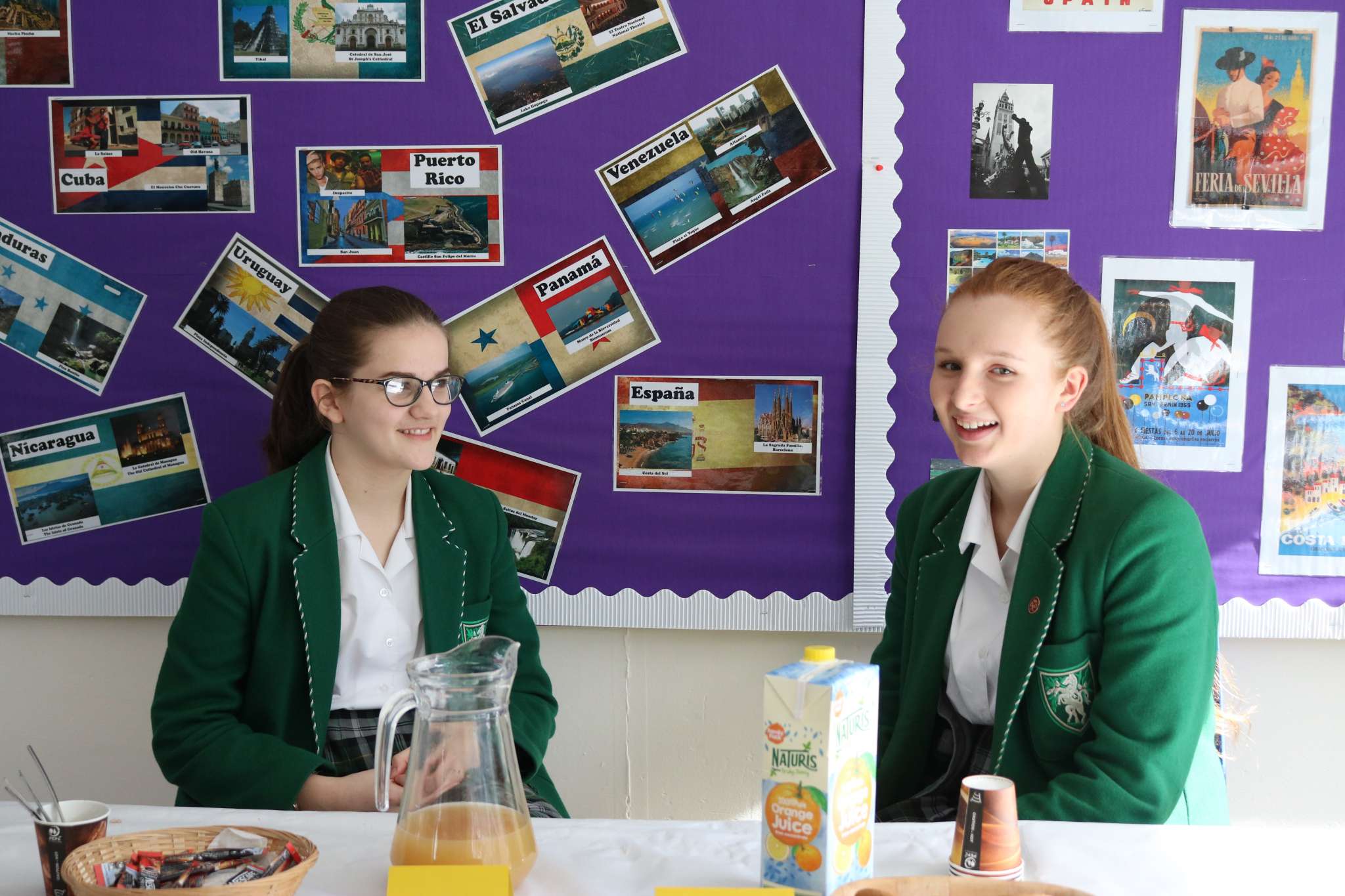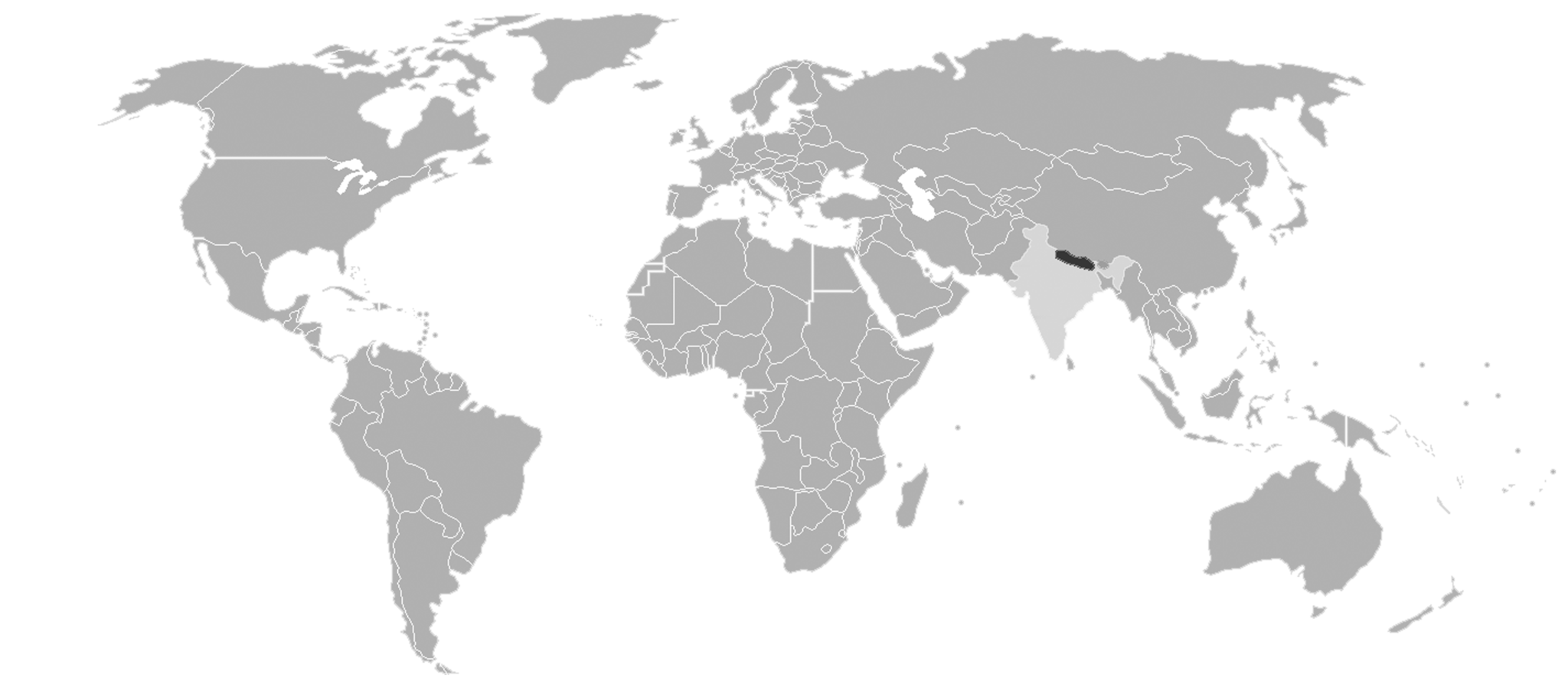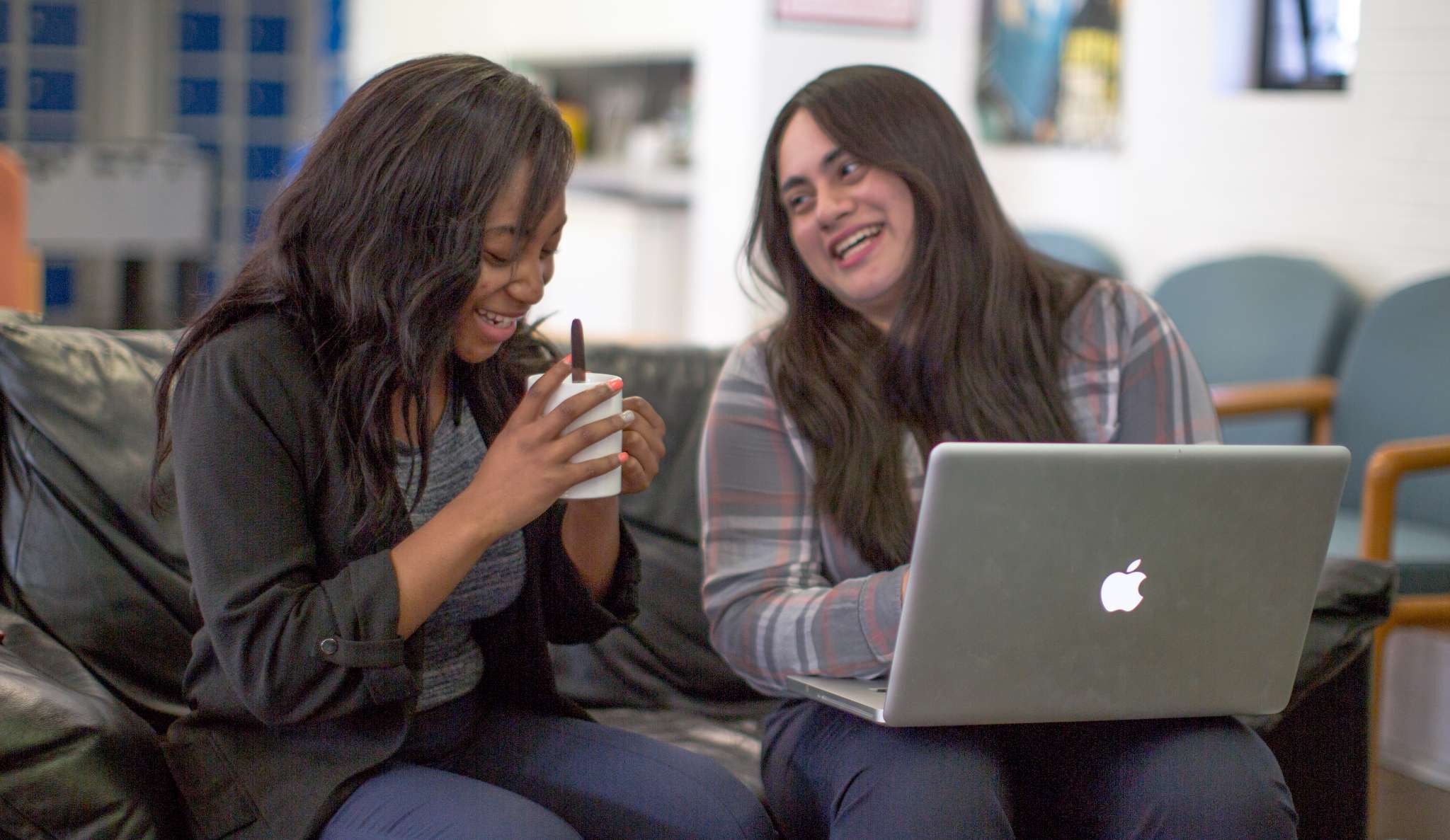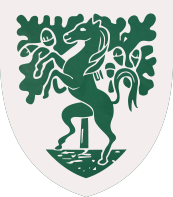The Modern Foreign Languages department comprises three subject areas: French, German and Spanish.

We aim to provide our pupils with the necessary skills to communicate effectively and to develop a sympathetic attitude to and a deeper understanding of the relevant cultures as well as giving them a wider global perspective. In the teaching of specific languages we endeavour to foster language awareness and to develop language-learning skills that will serve as a valuable basis for the acquisition of skills in other foreign languages and advanced language study.
Our vision within the languages department is to:
- Equip our pupils with the knowledge, understanding and key skills required to be successful language learning practitioners
- Build upon the foreign language learning that is undertaken within the prep school
- Promote a life-long love of language learning to ensure that the vast majority of our pupils opt to continue with at least one language at GCSE
- Make maximum use of the latest courses and interactive teaching methods in order to engage and motivate our pupils
- Attract pupils to continue learning languages at Post-16 level

KS3 – Years 7, 8 & 9
In Year 7 all pupils learn French and we build upon the skills and knowledge that have been incorporated during Years 4, 5 and 6. For those pupils starting French in Year 7, we provide them with basic language and key structures to enable them to begin communicating straight away. Pupils have two lessons of French a week.
During the autumn term of Year 7, pupils are also given taster sessions in Spanish and German so that they can choose their second language of study by Christmas. Pupils are then timetabled two additional lessons of either Spanish or German and continue to learn two languages throughout Years 8 and 9.
In Key Stage 3, learning is focussed on the development of language skills across different topic areas to ensure that pupils are challenged and motivated to express themselves in a variety of different ways. Topics covered can be broadly outlined in the following areas:
* Personal information (age/birthday/numbers/months/introductions/opinions)
* School (subjects/likes/dislikes/timetable information/time/extracurricular activities)
* Family (family members/descriptions/personalities/relationships/describing others)
* Local Area (saying where you live/describing local area/comparing and contrasting places)
* Free time (saying what you do/what you like and dislike/giving reasons for choices)
* Grammar (past/present/future/conditional tenses)
Pupils learn how to use language productively and creatively so that they can express their own ideas and opinions and engage in a variety of communication activities. Through the consistent use of the target language in the classroom, and language acquisition through listening, speaking, reading and writing, pupils are able to develop the confidence to produce a wide range of language. By the end of Year 9 this provides a solid foundation from which pupils can begin to prepare for their GCSE courses.
GCSE French/Spanish/German
Examination Board: AQA Specification codes: French 8658, Spanish 8698, German 8668
Subject Content
The specification for the GCSE covers three distinct themes:
Theme 1: Identity and culture
– Me, my family and friends
– Technology in everyday life
– Free time activities
– Customs and festivals
Theme 2: Local, international and global areas of interest
– Home/town/neighbourhood and region
– Social issues
– Global issues
– Travel and tourism
Theme 3: Current and future study and employment
– My studies
– Life at school/college
– Education post-16
– Jobs, career choices and ambitions
Assessment
GCSE French, Spanish and German have a Foundation Tier (Grades 1-5) and a Higher Tier (Grades 4-9). Pupils must take all examinations in the same tier. All assessment for the GCSE will take place at the end of Year 11 and pupils will sit the following examinations:
1. Paper 1 – Listening (Understanding and responding to spoken language)
25% of GCSE
2. Paper 2 – Speaking (Communicating in speech for different purposes)
25% of GCSE
3. Paper 3 – Reading (Understanding and responding to written language)
25% of GCSE
4. Paper 4 – Writing (Communicating in writing for different purposes)
25% of GCSE
KS5: AS and A LEVEL French/Spanish/German
Examination Board: AQA

AS Level French/Spanish/German
This is a one-year course in which students sit examinations at the end of Year 12. This year also comprises the first year of the full A-Level.
Subject Content
- Social issues and trends
- Artistic culture
- Grammar
- Works: Study of a literary text or a film
Assessment
- Paper 1: Listening, reading and writing
| What’s assessed Aspects of SocietyArtistic culture Grammar |
| How it’s assessed Written exam: 1 hour 45 minutes90 marks45% of AS |
- Paper 2: Writing
| What’s assessed One text or one film from the lists in the specificationGrammar |
| How it’s assessed Written exam: 1 hour 30 minutes50 marks25% of AS |
- Paper 3: Speaking
| What’s assessed One sub-theme from Aspects of society and one sub-theme from Artistic culture. |
| How it’s assessed Oral exam: 12–14 minutes60 marks30% of AS |
A Level
This is a two-year course in which students sit examinations at the end of Year 13.
Subject Content
- Social issues and trends
- Artistic culture
- Grammar
- Works: Study of a literary text and a film
Assessment
- Paper 1: Listening, reading and writing
| Paper 1: Listening, reading and writing |
| What’s assessed Aspects of SocietyArtistic culture Multiculturalism in societyAspects of political life Grammar |
| How it’s assessed Written exam: 2 hours 30 minutes100 marks50% of A-level |
- Paper 2: Writing
| What’s assessed One text and one film or two texts from the list set in the specificationGrammar |
| How it’s assessed Written exam: 2 hours80 marks in total20% of A-level |
- Paper 3: Speaking
| What’s assessed Individual research projectOne of four themes (ie Aspects of Society or Artistic Culture or Multiculturalism or Aspects of political life |
| How it’s assessed Oral exam: 21–23 minutes (including 5 minutes preparation time)60 marks in total30% of A-level |
A knowledge of one or more foreign languages can be useful in a wide range of careers. At university many of our students have gone on to combine a foreign language with their degree. For some jobs, such as translating, interpreting and language teaching, language skills are one of the main requirements. For other jobs a combination of languages and other qualifications, knowledge or skills may be needed. For example, people with languages plus ICT, law, finance or sales skills are highly sought after.


